第21章 The Passing Show Of 1800(1)
Foreign travelers who have come to the United States have always proved of great interest to Americans.From Brissot to Arnold Bennett while in the country they have been fed and clothed and transported wheresoever they would go--at the highest prevailing prices.And after they have left, the records of their sojourn that these travelers have published have made interesting reading for Americans all over the land.Some of these trans-Atlantic visitors have been jaundiced, disgruntled, and contemptuous;others have shown themselves of an open nature, discreet, conscientious, and fair-minded.
One of the most amiable and clear-headed of such foreign guests was Francis Baily, later in life president of the Royal Astronomical Society of Great Britain, but at the time of his American tour a young man of twenty-two.His journey in 1796-97gave him a wide experience of stage, flatboat, and pack-horse travel, and his genial disposition, his observant eye, and his discriminating criticism, together with his comments on the commercial features of the towns and regions he visited, make his record particularly interesting and valuable to the historian.*Using Baily's journal as a guide, therefore, one can today journey with him across the country and note the passing show as he saw it in this transitional period.
* "Journal of a Tour in Unsettled Parts of North America in 1796and 1797" by the late Francis Baily (London, 1856).
Landing at Norfolk, Virginia, Baily was immediately introduced to an American tavern.Like most travelers, he was surprised to find that American taverns were "boarding-places," frequented by crowds of "young, able-bodied men who seemed to be as perfectly at leisure as the loungers of ancient Europe." In those days of few newspapers, the tavern everywhere in America was the center of information; in fact, it was a common practice for travelers in the interior, after signing their names in the register, to add on the same page any news of local interest which they brought with them.The tavern habitues, Baily remarks, did not sit and drink after meals but "wasted" their time at billiards and cards.The passion for billiards was notorious, and taverns in the most out-of-the-way places, though they lacked the most ordinary conveniences, were nevertheless provided with billiard tables.This custom seems to have been especially true in the South; and it is significant that the first taxes in Tennessee levied before the beginning of the nineteenth century were the poll tax and taxes on billiard tables and studhorses!
>From Norfolk Baily passed northward to Baltimore, paying a fare of ten dollars, and from there he went on to Philadelphia, paying six dollars more.On the way his stagecoach stuck fast in a bog and the passengers were compelled to leave it until the next morning.This sixty-mile road out of Baltimore was evidently one of the worst in the East.Ten years prior to this date, Brissot, a keen French journalist, mentions the great ruts in its heavy clay soil, the overturned trees which blocked the way, and the unexampled skilfulness of the stage drivers.All travelers in America, though differing on almost every other subject, invariably praise the ability of these sturdy, weather-beaten American drivers, their kindness to their horses, and their attention to their passengers.Harriet Martineau stated that, in her experience, American drivers as a class were marked by the merciful temper which accompanies genius, and their perfection in their art, their fertility of resource, and the gentleness with which they treated female fears and fretfulness, were exemplary.
In the City of Brotherly Love Baily notes the geniality of the people, who by many travelers are called aristocratic, and comments on Quaker opposition to the theater and the inconsequence of the Peale Museum, which travelers a generation later highly praise.Proceeding to New York at a cost of six dollars, he is struck by the uncouthness of the public buildings, churches excepted, the widespread passion for music, dancing, and the theater, the craze for sleighing, and the promise which the harbor gave of becoming the finest in America.Not a few travelers in this early period gave expression to their belief in the future greatness of New York City.These prophecies, taken in connection with the investment of eight millions of dollars which New Yorkers made in toll-roads in the first seven years of this new century, incline one to believe that the influence of the Erie Canal as a factor in the development of the city may have been unduly emphasized, great though it was.
>From New York Baily returned to Baltimore and went on to Washington.The records of all travelers to the site of the new national capital give much the same picture of the countryside.
It was a land worn out by tobacco culture and variously described as "dried up," "run down," and "hung out to dry." Even George Washington, at Mount Vernon, was giving up tobacco culture and was attempting new crops by a system of rotation.Cotton was being grown in Maryland, but little care was given to its culture and manufacture.Tobacco was graded in Virginia in accordance with the rigidity of its inspection at Hanover Court House, Pittsburgh, Richmond, and Cabin-Point: leaf worth sixteen shillings at Richmond was worth twenty-one at Hanover Court House; if it was refused at all places, it was smuggled to the West Indies or consumed in the country.Meadows were rapidly taking the place of tobacco-fields, for the planters preferred to clear new land rather than to enrich the old.